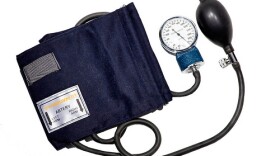About 120 over 80 is considered normal blood pressure. But blood pressure can run higher as you get older – around 140. Doctors wanting to lower that systolic number finally have an ideal target thanks to a study of more than 9,300 seniors called SPRINT.
Dr. Robert Toto is professor of internal medicine at UT Southwestern Medical Center, and the principal investigator for the UT Southwestern site of the SPRINT study.
Highlights from Dr. Toto’s interview:
Purpose of the SPRINT study: “The SPRINT (Systolic Blood Pressure Intervention Trial) study was designed to determine whether lowering the blood pressure to 120 systolic versus keeping just below 140 would reduce the risk of cardiovascular events in people who are at risk for cardiovascular events. And those included older people who had a pre-existing cardiovascular event except for stroke, meaning heart attack, heart failure, people who have chronic kidney disease, or people who are very high risk according to certain risk scores.”
Results of the study: “Those who were randomized to the systolic of less than 120 had a 30 percent lower rate of events like heart attacks and strokes and so on, as compared to the standard less-than-140 group. Not only that, there was a 25 percent lower death from causes in the lower blood pressure control group.
How doctors reached the 120 level: “The way we did this was to add medication to whatever they were taking or adjust the medication they were taking in order to achieve the lower blood pressure goal, or to achieve the standard blood pressure control.”
What to take from the SPRING Study: “We now know if you do lower the blood pressure with medication to less than 120, overall it improved the outcomes of patients with hypertension. The second thing is the low blood pressure level seems to benefit the elderly population as well. There are concerns about lowering blood pressure levels in elderly people to less than 120 because they tend to have more stiff circulation, and there’s always concern about whether they’ll tolerate a blood pressure that level. It’ll become increasingly important to understand how we can safely treat those patients and prevent them from having things like strokes and heart attacks, which as you get older you’re more likely to encounter.”
For more information:






